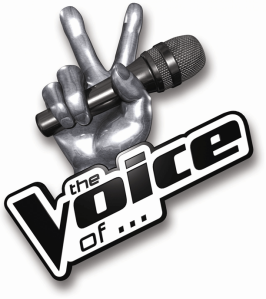
Fill in the blank, authors.
This post needs comments!
Since my guest-post on The Muffin, where I seek advice about how to achieve the “Strong Female Voice” that so many agents seem to want, I’ve been pondering that question that authors seem to answer differently each time they are asked: what, exactly, is “Voice” in written fiction? It seems that agents want ‘original voices,’ implying that our writing should speak in some wacky or innovative way that’s never been used. Yet, agents also want accurate grammar, and writing that readers can follow easily. There is some contradiction.
Of course, the most interesting stories, particularly novels, tend to feature a variety of characters, so their voices need to identify them in startling, alluring or humorous ways that are still partly predictable. That is a huge challenge, but one for another discussion: for today, let’s narrow our focus to some different types of narrative voice. Here are some ideas, but I hope for some comments to reveal more:
The Voice of Authority
Novels told by an authoritative narrator tend to be easy to read, because the narrator’s job is to make us understand and accept his view of the story. I use the sexist pronoun ‘his’ intentionally, because this is typical of a time when male authors dominated literature: H.G. Wells (who was probably male) had his narrator dictate to us exactly who those pesky Martians were, and how they could slice up Woking for lunch. The Journalist dictated this even while the other characters (including the protagonist, who was the same person) waved sticks and rifles around until they were fricasseed by a heat-ray or two. There was no need to wonder why this was happening: The Journalist told us, and, whenever he didn’t know, he only needed to ask his partner-in-arrogance, Ogilvy.
Boring? It wasn’t when Herbert George did it, but it is when I try. So, let’s move on to…
The Voice of Ignorance
An ignorant narrator is a bigger challenge for me as an author. Any narrator who can’t help me to help me inform my readers is making my life pretty tough. Harper Lee’s approach in Mockingbird is one that has stuck with me, but, at the risk of heresy, she actually cheated a little: grown-up Jean Louise knew exactly what was happening, and was only remembering her perspective as ignorant little Scout. Still, it’s probably more interesting to find out ‘what’s up’ along with a narrator, so let’s step it up now to…
The Voice of Deception
Here is the motherload: the Holy Grail of an unreliable narrator, currently hot with agents and something I have achieved with satisfaction in some of my short fiction. Sadly, attempting it for NaNoWriMo was probably a mistake, as my attempts to tell Death Imitates Art through an unreliable narrator needed a lot more time to refine and tweak. Nearly every detail an unreliable narrator reveals is critical to his or her effectiveness. The idea is for the narrator to keep something critical from us: not just from the other characters, but from readers, too. This could mean that they’re ready for the Linoleum Bin, like Holden was in Catcher… but I’ve always felt that Ishiguro did a much more subtle job of this in The Remains of the Day. He designed a perfectly sane, perfectly likeable character who talked around the most important fact about his beloved employer, simply because he didn’t want anyone to judge a man who really should have been harshly judged.
In other words, the butler Stevens acted just like the rest of us do. Maybe, then, the most original narrative voice is just the one each of us hears in our head every day.
I am seeking some insights, here: What is your idea of effective narrative voice? Can anyone read my sample of Death Imitates Art, and comment on whether you can tell what Eloise is hiding?
Hello, bloggifiers… if any of you out there write fiction (or even read it, for that matter) I would really appreciate your insight on this.
LikeLike
Pingback: Show, Don’t Tell (unless you’re in Kindergarten). | Words from K. Alan
I don’t have a strong point of view on this. And actually, I get so confused about 1st person, 2nd, and 3rd, that I don’t know where to begin. I do like the “I” but somehow that implies you know everything when you want things to be discovered, like using a male reporter or journalist, or detective as your backdrop. Then again, if they want women voices, well, you don’t tell it from his point of view and third seems so out of the room. Maybe 1st would be good and then flashback his point of view, etc. Ha. See I’m confused. I should go read the 1st three pages of a good horror, thriller, or suspense and maybe I’ll have my answer. Thanks.
LikeLike
I actually think third-person implies more knowledge, but neither one has to. A first-person narrator (who is saying “I” a lot to narrate about the past) probably knows what is going to happen, but nobody expects her to tell everything. This is where you can have that narrator mislead people, or even “lie” a little: the unreliable narrator. That becomes tricky (I just tried it in Death Imitates Art and I am uneasy with the finished product) because readers can feel cheated or lied to if it isn’t handled just right. It’s worth thinking about, so some back to talk more after you read a bit of both styles.
LikeLike